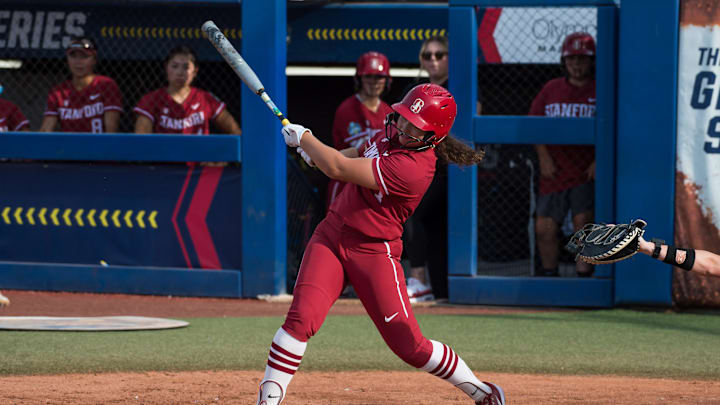It felt like major change would come for the Toronto Maple Leafs many times before. In 2020, after the Columbus Blue Jackets upset them in a five-game play-in round series. In 2021, after the Montreal Canadiens came from behind and embarrassed them in seven games.
In 2022, after the Tampa Bay Lightning outlasted them in Game 7. Advertisement In 2023, after the Florida Panthers rolled to a five-game win in the second round. And then there was last spring when, after losing another Game 7 to the Boston Bruins, the seventh first-round loss in eight seasons, team president Brendan Shanahan said, “We will look at everything this summer, and we will consider everything this summer.

” Everything was considered. Everything but the coach stayed the same — again. But now really does feel like it could be the last stand for the Maple Leafs of Shanahan, Auston Matthews, Mitch Marner, William Nylander, John Tavares and Morgan Rielly, the core that’s remained together through thick and thin since 2018 (even before that for the non-Tavares group) and won just a single playoff series.
This could be their last chance to chase the Stanley Cup — together. “I just think it’s a goal to go deeper and further than we have been before,” Nylander told me this spring. “I don’t think it’s anything (we have) to prove.
I think it’s just something that we have as a goal and that we want to accomplish.” What makes this year different from all the rest is legitimate uncertainty at the heart of that core — actual contracts coming to an end. Shanahan’s vision for the Leafs is literally at stake.
Hired in the spring of 2014, Shanahan is coming to the end of his 11th season as team president and the final year of the six-year contract extension he signed in the spring of 2019. (Shanahan declined to provide details when asked about his contract at the end of last season.) Keith Pelley had just taken over as the fifth president and CEO of Maple Leafs Sports and Entertainment last spring when he opted to keep Shanahan around for another season.
“I understand the results,” Pelley said then, “but I can only evaluate what I have seen in the first four weeks.” Advertisement Pelley has been on the job, and around the team, for just over a year. He will occasionally appear at morning skates.
His understanding and evaluation of the team, including its front office, will be deeper than it was then. “The reality of the situation is the ultimate responsibility is on me,” Shanahan said after last season. “The accountability is on me.
Our playoff results have not been good enough. That’s on me.” What will constitute “good enough” for Pelley this spring? Anything short of a Stanley Cup for a team that hasn’t won, or even advanced to the final, since 1967 should qualify as failure.
Anything short of an appearance in the Eastern Conference final though, may not be “good enough” to forstall substantial change to the front office that perhaps goes even beyond Shanahan to include GM Brad Treliving. These remain Shanahan’s Leafs. He has clung to this core through every imaginable defeat, including in 2023 when, after a humbling second-round exit and the sudden firing of GM Kyle Dubas, he made it known to the stars very quickly that they were all staying.
His Leafs would not contemplate that level of change, which was significant since it was the last chance for the team to pivot with relatively full control: Tavares and Rielly both had no-trade protection in their respective contracts, but Matthews, Marner and Nylander didn’t — not until July 1 that summer. That point was highlighted at the trade deadline this spring when the team tried and failed to extend Marner and then tried and failed to trade him for Mikko Rantanen. Marner is, of course, another massive domino in all this, a bigger domino, arguably, than even Shanahan.
All indications are that Marner has chosen not to extend his contract until after the playoffs, if he extends at all. He has offered only cryptic reasons as to why . Advertisement If the playoffs go for Marner, and for the Leafs, the way they have in the past, it’s conceivable that Marner, a lightning rod for criticism, simply decides he’d rather play somewhere other than home for the rest of his career.
It’s possible he makes that choice even after a positive postseason. Which would leave the Leafs without their second- or third-best player and a long-time pillar of the franchise. And if an early exit indeed prompts a managerial overhaul, it’s possible that a new front office, with a new president and a new GM, decides it’s time to move on from Tavares, also a free agent at the end of the season who, unlike Marner, has left no doubt that he would like to extend his contract and remain in Toronto.
In a matter of weeks, this team could look radically different. It could also look the same, even without a deep playoff run. We should be way past the point of assuming that, absent a return to, say, the franchise’s first conference final since 2002, this team will absolutely change in major ways.
Again and again, ownership and/or Shanahan has proven that playoff success isn’t the determining factor for, well, success. Major change would have come long ago if it were. (That stance was only reinforced with the determination to extend Marner before the playoffs.
) Would it be a shock to see Shanahan retained and Marner and Tavares both re-signed, if Marner decides that’s what he wants, after a short playoff run? Nope. Will it be a short playoff run though? There are legitimate reasons to believe this year may be different. While there’s no such thing as an easy path to the Stanley Cup, the road through the Eastern Conference is certainly lighter than it’s been in previous years.
Not since that 2020-21 season, when they were playing in an all-Canadian division, has the path felt so fortuitous. Advertisement Consider that in the 2021-22 season, five Eastern Conference teams finished the regular season with 110 points or more (including the Leafs at 115). A year later, four teams hit that mark (including the Leafs at 111).
Last season, three Eastern teams racked up 110-plus (and one more, the Bruins, finished with 109). This season? Just the one, a 111-point Washington Capitals team that shattered any and all expectations. The 97-point Ottawa Senators are among the weaker teams the Leafs have faced in the first round.
Beat the Sens in the first round, as they should, and the Leafs would move on to face either the Lightning, a team they’ve increasingly had their way with, or a banged-up Panthers team trying to reach a third straight final. Clear that second-round barrier, finally, and the Leafs would get one of the Capitals, Canadiens, Carolina Hurricanes, or New Jersey Devils in the conference final, all teams they would likely be favoured to beat. “I like where our team is at right now,” Treliving said on the eve of the postseason.
“The past is the past. This is a different group.” With Anthony Stolarz leading the way, the Leafs appear stronger in goal than they have at any point in this era.
Same with the top four on defence — Jake McCabe, Chris Tanev, Brandon Carlo and Rielly — if healthy. And while Matthews isn’t the all-world destroyer of last season, Nylander and Marner are both at or near the top of their respective games and more mature players than they’ve been at previous points. Matthew Knies’ emergence brings this team a dimension beyond the stars that it hasn’t had before.
The Leafs still have to prove that this year is different, that they are different from those failed teams of the past. In which case, this won’t be the last stand, but the beginning of many more. (Top photo: Steve Russell / Toronto Star via Getty Images).
Sports

The Maple Leafs’ ultimate last stand: Will these playoffs be it?

It feels like it could be the final chance for the core that’s remained together through thick and thin to chase the Stanley Cup together.















